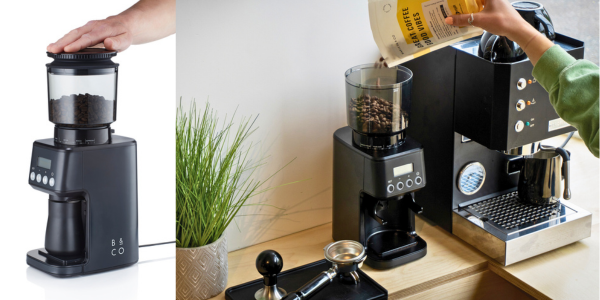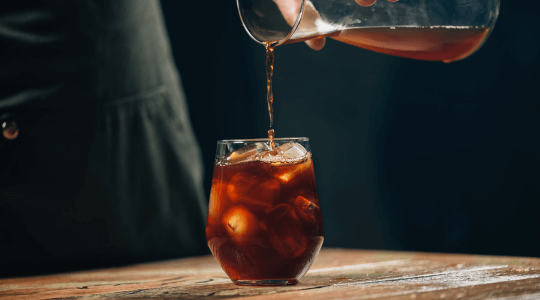Why Does Cold Brew Contain More Caffeine?
In the realm of coffee connoisseurs, the allure of cold brew extends beyond its smooth flavour and refreshing nature—there's a hidden secret that adds to its mystique.
Cold brew, the slow-steeped elixir, is renowned for its potent caffeine kick. But why does cold brew have more caffeine than its hot-brewed counterparts? In this blog post, we'll delve into the science behind cold brew's caffeine content, exploring the factors that make it a powerhouse for those seeking an extra jolt.
The Basics: What is Cold Brew?
Before we unravel the caffeine mystery, let's briefly revisit what cold brew is and how it differs from traditional hot brewing methods.
Cold brew is a method of coffee preparation where coarsely ground coffee beans are steeped in cold or room temperature water for an extended period, usually 12 to 24 hours. This slow extraction process results in a concentrated coffee that is less acidic and smoother than its hot-brewed counterparts.
The Caffeine Conundrum: Hot vs. Cold
Coffee enthusiasts often debate the caffeine content in various brewing methods, with cold brew frequently stealing the spotlight for its reputation as a caffeine powerhouse. To understand why cold brew tends to pack a more significant punch, we need to explore the factors influencing caffeine extraction.
1. Time is on Cold Brew's Side
The extended steeping time in cold water is a key contributor to cold brew's higher caffeine content. While traditional hot brewing methods extract caffeine more rapidly, the lengthy immersion in a cold brew coffee maker allows cold brew to extract a higher percentage of caffeine from the coffee grounds.
2. Coarse Grind, Higher Caffeine
The coarseness of the coffee grounds used in cold brew also plays a crucial role. Coarse grounds are typically preferred for cold brew to prevent over-extraction during the extended steeping process. The larger particle size provides a balance, allowing for optimal flavour extraction without extracting undesirable bitter compounds.
Comparing Caffeine Content: Cold Brew vs. Hot Coffee
Now that we've explored the factors contributing to cold brew's caffeine prowess, let's compare its caffeine content with hot-brewed coffee.
Cold Brew: The Caffeine Champ
Cold brew generally boasts a higher caffeine content per ounce compared to hot-brewed coffee. The slow and patient extraction process allows cold brew to extract more caffeine from the coffee grounds. As a result, a smaller volume of cold brew can deliver a comparable or even higher caffeine kick than a larger cup of hot coffee.
Hot Coffee: Familiar Strength
Hot-brewed coffee, despite its rapid extraction process, tends to have a lower caffeine concentration than cold brew on a per-ounce basis. The quicker extraction in hot water means that some of the compounds, including caffeine, may not be fully extracted before the brewing process completes.
The Impact of Dilution
It's essential to consider the dilution factor when comparing caffeine content. Cold brew is often served over ice or diluted with water or milk, which can influence the perceived strength and caffeine concentration. Even with dilution, cold brew can maintain a potent caffeine profile.
Conclusion: Decoding the Cold Brew Caffeine Mystery
In conclusion, the mystery behind cold brew's potent caffeine kick lies in its extended steeping time, the use of coarse grounds, and the patient extraction process. Cold brew's slow dance with cold water allows it to extract more caffeine from the coffee grounds, resulting in a concentrated elixir that often surpasses the caffeine content of hot-brewed coffee.
So, the next time you savour a glass of cold brew and feel that delightful caffeine buzz, you'll know that it's not just your imagination—there's a scientific explanation behind the magic of cold brew's caffeine potency. Whether you prefer the slow dance of cold brew or the swift rhythm of hot-brewed coffee, understanding the caffeine nuances adds a new dimension to your appreciation of these caffeinated delights.
As coffee culture continues to evolve, the quest for the perfect cup remains, and the mystery behind cold brew's caffeine content adds an intriguing layer to the ever-expanding world of coffee exploration. Cheers to the journey of unravelling the secrets of our favourite brews!








Leave a comment